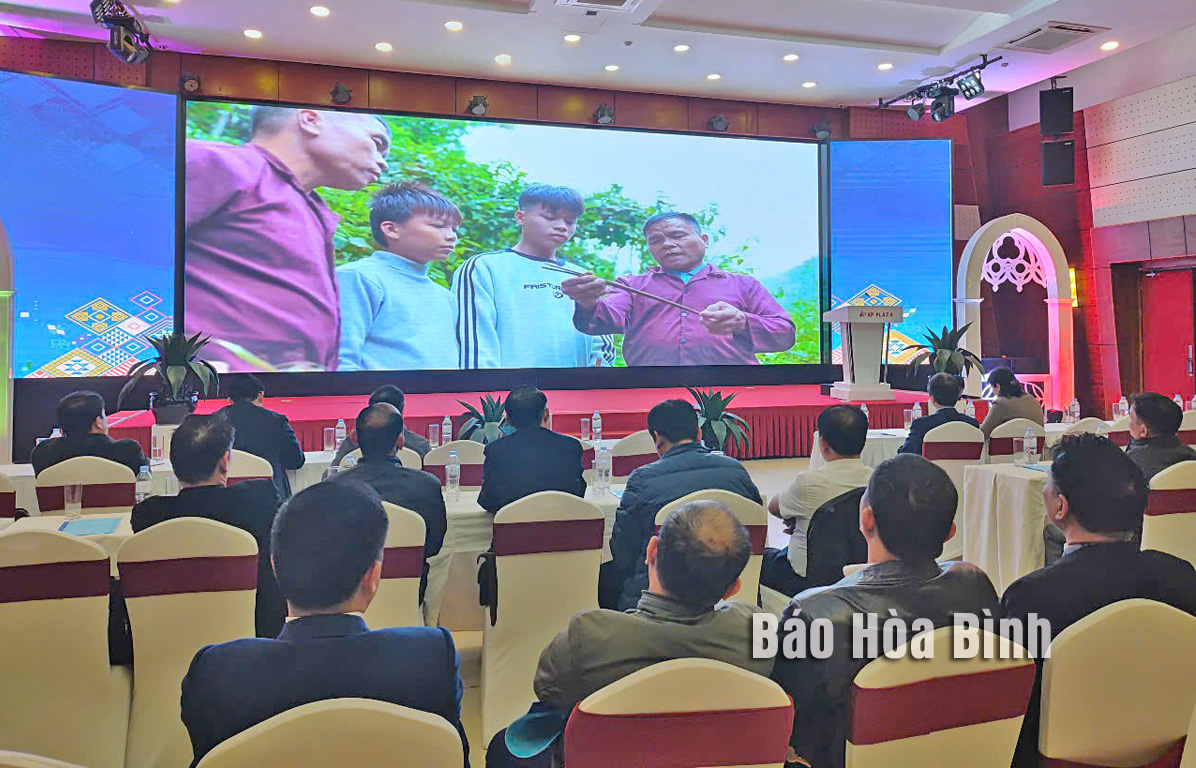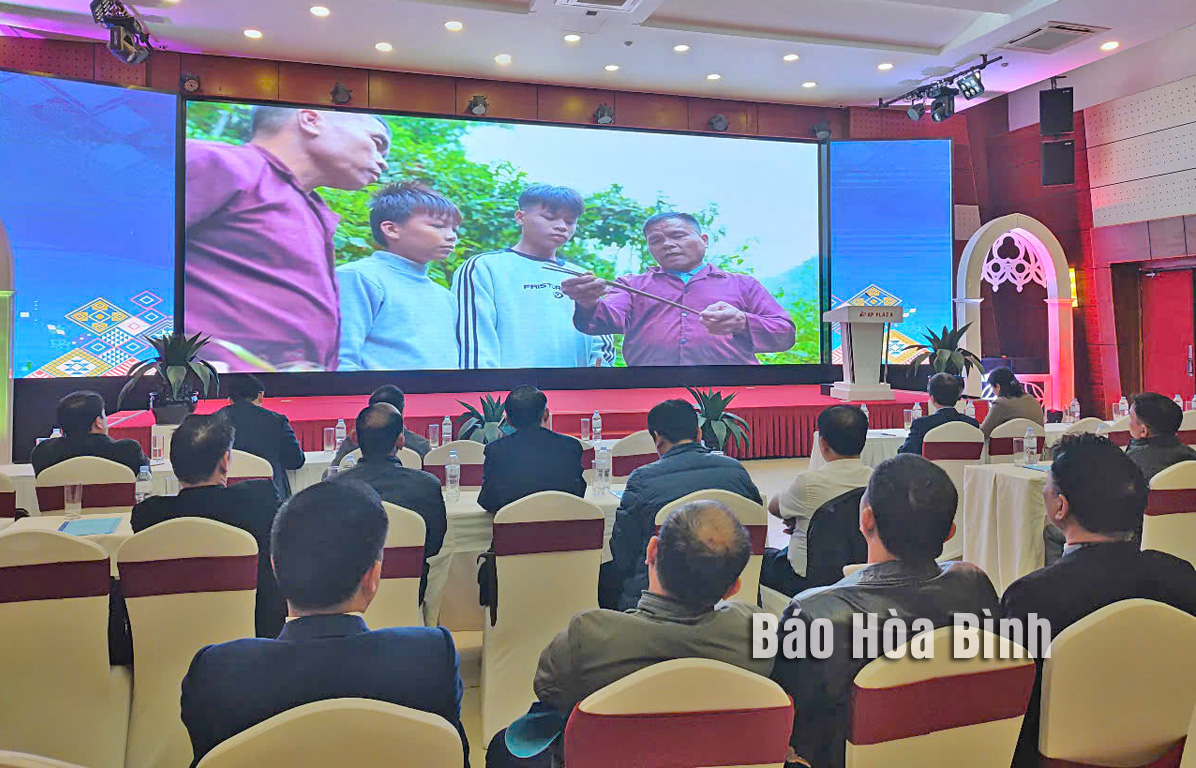
The provincial Department of Culture, Sports, and Tourism on December 24 organised a conference to report on the results of collecting, researching, restoring, and preserving "Bi doi”, a musical instrument of the airophonic family and a traditional instrument of the Muong ethnic people in Da Bac district.

Delegates watch documentary on the technique of
crafting and the art of performing "Bi doi” of the Muong people in Da Bac.
The delegates watched a documentary showcasing the results
of the "Bi doi" collection and documentation as well as the technique
of crafting and the art of performing the instrument.
"Bi doi” is a unique musical instrument of the Muong people
in Da Bac district who also refer to it as "Pi Toi” or "Pi Doi”. It is used
during festive occasions, celebrations, and Tet holidays, and in the
storytelling time after long hours of hard work. "Bi doi” has become an
indispensable instrument, embodying the spirit and essence of Muong ethnic
minorities.
In its efforts to preserve and promote the cultural heritage
of ethnic minorities in the province, the department has undertaken the
collection, research, and restoration of the methods for finding materials,
crafting, and teaching the instrument. The goal is to preserve and promote its
cultural value, while also developing tourism services, and fostering
socio-economic, and cultural development in the locality.
This effort is part of the project to preserve the cultural
heritage of the Muong ethnic group and the "Hoa Binh Civilisation,"
thus contributing to affirming the position, role, and profound significance of
traditional musical instruments in the cultural life of the group, and raise
awareness about the importance of preserving and promoting the "Bi doi” instrument.
At the conference, delegates from various departments,
agencies and the district, and artisans contributed their opinions on the
results of the collection and documentation of this instrument, as well as
measures to preserve and promote local cultural heritage.
With an increasingly vibrant and widespread emulation movement aimed at building cultured residential areas and cultured families, Yen Thuy District has been making steady progress toward improving both the material and spiritual well-being of its people, while fostering a civilized, prosperous, beautiful, and progressive community.
Once lacking recreational spaces and community facilities, Residential Group 2 in Quynh Lam Ward (Hoa Binh City) has recently received attention for the construction of a new, spacious, and fully equipped cultural house. The project followed the model of state support combined with public contributions in both labor and funding.
The "All people unite to build cultural life" movement, which has been effectively integrated with Kim Boi district’s socio-economic development goals, is fostering a lively spirit of emulation across local residential areas, hamlets, villages, public agencies, and enterprises. In addition, through the initiative, traditional cultural values are being preserved and promoted, while community solidarity and mutual support in poverty reduction and economic development are being strengthened.
A working delegation of the Hoa Binh provincial People’s Committee led by its Permanent Vice Chairman Nguyen Van Toan on June 11 inspected the progress of a project to build the Mo Muong Cultural Heritage Conservation Space linked to tourism services in Hop Phong commune, Cao Phong district.
Born and growing in the heroic land of Muong Dong, Dinh Thi Kieu Dung, a resident in Bo town of Kim Boi district, in her childhood was nurtured by the sweet lullabies of her grandmother and mother. These melodies deeply imprinted on her soul, becoming an inseparable part of her love for her ethnic group's culture. For over 20 years, this love for her hometown has driven Dung to research, collect, and pass down the cultural values of the Muong people to future generations.
In the final days of May, the Ethnic Art Troupe of Hoa Binh Province organized performances to serve the people in remote, mountainous, and particularly disadvantaged areas within the province. These were not just ordinary artistic shows, but they were the meaningful journeys aimed at spreading cultural values, enhancing the spiritual life of the people and contributing to the preservation of ethnic minority cultural identities.



